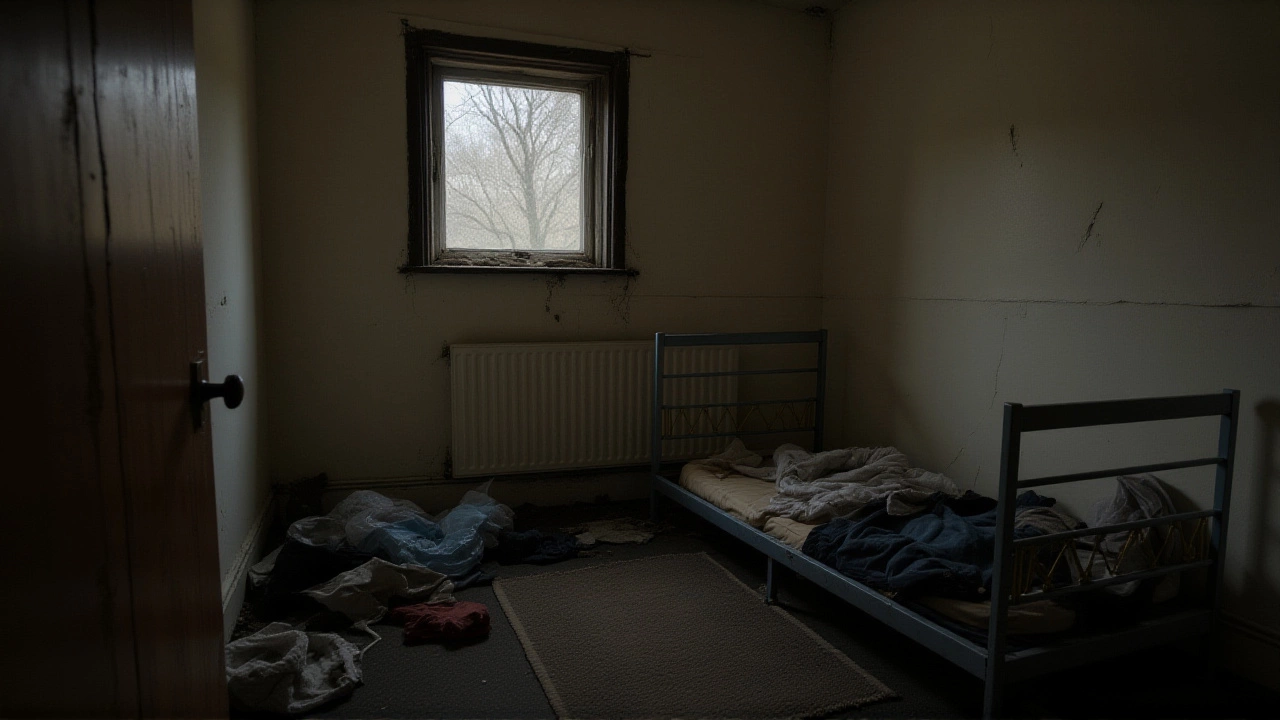When Stay Belvedere Hotels Limited failed to forward payments in March 2025, dozens of London hotels issued stark eviction warnings, leaving hundreds of asylum seekers hanging by a thread.
Background: The UK’s hotel‑based asylum system
Since 2015 the Home Office has used a dispersal model that routes newly arrived asylum seekers into temporary hotel rooms while their claims are processed. Today roughly 38,000 people live in hotels across the United Kingdom, and the daily bill tops £5.5 million. The model relies on a chain of contracts: the Home Office signs a primary agreement with an intermediary accommodation manager, which then sub‑contracts individual hotels. It’s a bit like a relay race where the baton is a payment check – if the middle runner drops it, everyone downstream suffers.
Enter Stay Belvedere Hotels Limited (SBHL). In early 2023 the firm secured the Home Office’s main contract to manage more than 50 hotels that housed asylum seekers. By early 2025, however, the department grew uneasy, citing "poor behaviour and inadequate performance standards". On the Home Office stripped SBHL of that contract, an event that set the stage for the cash‑flow crisis that erupted a month later.
Payment breakdown and its immediate fallout
In April 2025 hotel operators across the capital began ringing the Home Office’s alarm bells. They claimed they had not received any of the payments due for March’s accommodation services, payments that were supposed to flow through SBHL. One hotel chain, which prefers to stay anonymous, reported a shortfall of £750,000 – enough to cover insurance, staff wages and basic utilities for a three‑month period.
The missing money did more than just dent balance sheets; it threatened to breach insurance contracts that require proof of premium payment. Without coverage, hotels could be exposed to lawsuits if an incident occurs in a room housing an asylum seeker. The legal risk, combined with cash‑flow strain, pushed many owners to the brink of bankruptcy.

Voices from the ground: hotel owners and asylum seekers
“We’re saying that if there is no payment, there is no option. We will have to evict the asylum seekers,” said an anonymous hotel owner who represents a cluster of properties in north‑London. He declined to give his name, fearing retaliation, but stressed that the decision would be “a last resort, not a desire”.
For the people living in those rooms, the prospect of sudden eviction feels like being handed a one‑way ticket to the streets. A 27‑year‑old Afghan claimant, who asked not to be identified, told reporters she has already packed a bag “just in case”. She added, “We came here hoping for safety. Now it feels like we might be sent back out into the cold.”
Legal and financial ramifications
Legal experts warn that the situation exposes a structural flaw in the UK’s asylum accommodation framework. Dr. Emily Clarke, a professor of immigration law at the University of Westminster, remarked, “When the government outsources payments to an intermediary, it creates a single point of failure. SBHL’s collapse shows how quickly vulnerable populations can be caught in the crossfire.”
Insurance brokers confirm that insurers are already reviewing the coverage gaps. A spokesperson for a leading UK insurer said, “We’re assessing each claim individually, but the lack of premium payments could render policies void, exposing hotel owners to significant liability.”

What’s next? Government response and possible solutions
Home Office officials, speaking on condition of anonymity, acknowledged the urgency. They said a “fast‑track emergency funding” is being prepared to bridge the payment gap while a new contract with a vetted intermediary is negotiated. However, no concrete timeline has been offered, and critics argue that the department’s previous “improve standards” rhetoric has outpaced actionable plans.
Some local councils have begun exploring alternative housing options, such as repurposing community centres or negotiating short‑term leases with private landlords. A spokesperson for the Greater London Authority hinted that a “city‑wide audit of all hotel contracts” could be on the agenda for the coming months.
- Key Fact 1: SBHL managed over 50 hotels for the Home Office before its contract was terminated on 1 March 2025.
- Key Fact 2: Approximately 38,000 asylum seekers are housed in UK hotels, costing the government £5.5 million per day.
- Key Fact 3: Hotel operators reported a payment shortfall of up to £750,000 for March 2025 services.
- Key Fact 4: Without insurance premiums, hotels risk breach of policy and potential legal action.
- Key Fact 5: The Home Office is reportedly preparing emergency funding but has not set a release date.
Frequently Asked Questions
Why are hotels being asked to evict asylum seekers?
The eviction threat stems from a cash‑flow crunch. Without the payments that SBHL was supposed to forward, hotel owners cannot cover insurance premiums or operational costs, leaving them legally unable to continue housing migrants.
What caused Stay Belvedere Hotels Limited to miss the payments?
SBHL lost its primary Home Office contract in March 2025 after the department cited poor performance. The termination created a payment void; the company never received the government funds it needed to settle invoices with individual hotels.
How many asylum seekers could be displaced if evictions proceed?
Hundreds of individuals are currently in the affected London hotels. While exact numbers vary, estimates suggest between 300 and 500 asylum seekers could lose their rooms within weeks of an eviction order.
What alternatives does the government have?
Officials are looking at emergency funding to cover back‑payments and at fast‑track contracts with new accommodation managers. Some local authorities are also considering repurposing community facilities or negotiating short‑term leases with private landlords as stop‑gap measures.
What does this crisis reveal about the UK’s asylum system?
It highlights the vulnerability of a system that relies heavily on intermediaries. A single breakdown – like SBHL’s payment failure – can cascade into legal, financial, and humanitarian emergencies, underscoring the need for more direct oversight and diversified housing strategies.

